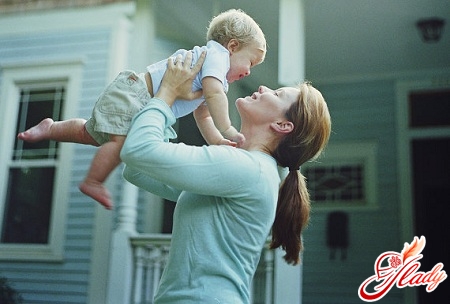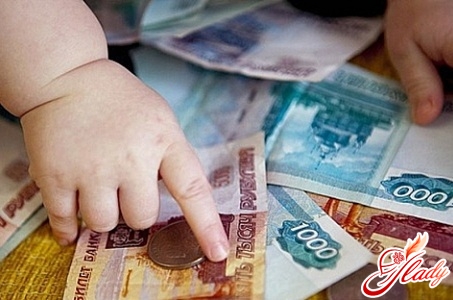 Families with children growing up are doing greatare aware of how much effort, patience and resources are required to raise at least one child. It is very good if both parents are equally involved in this labor-intensive process: the father earns money, the mother takes care of the child and the house. As the baby grows up, the responsibilities in the family are either redistributed or not, depending on the realities of life and the desires of family members. The whole point is that the difficult burden of raising children is shared between two people - father and mother. This is exactly the kind of family that is considered traditional in the generally accepted sense. However, in our difficult times, when changes and new trends have affected all spheres of life, and even the seemingly unshakable boundaries between the masculine and feminine principles have become transparent, a conscious choice to give birth to a child is becoming a common occurrence among representatives of the beautiful half of humanity. This happens even in the case when living together with his potential father is either impossible for a number of reasons, or is generally undesirable. A similar position in our country several decades ago was considered, if not nonsense, then at least quite rare. After all, the fact of giving birth to a child without a husband was perceived in society as a disgrace for a woman. Therefore, rarely did anyone consciously decide on such a step. Basically, single mothers at that time considered the birth of their child a mistake of youth. It was not their conscious decision to conceive, but rather an accident, and the birth of the baby was dictated by circumstances, and not a deliberate desire. But recently the situation has changed: relations between men and women have become more complicated, the institution of family and marriage has lost its former weight, but the instinct of motherhood still lives in each of us. Therefore, questions about what rights the state provides for modern single mothers, how well their status is protected by law and what benefits are provided are especially relevant.
Families with children growing up are doing greatare aware of how much effort, patience and resources are required to raise at least one child. It is very good if both parents are equally involved in this labor-intensive process: the father earns money, the mother takes care of the child and the house. As the baby grows up, the responsibilities in the family are either redistributed or not, depending on the realities of life and the desires of family members. The whole point is that the difficult burden of raising children is shared between two people - father and mother. This is exactly the kind of family that is considered traditional in the generally accepted sense. However, in our difficult times, when changes and new trends have affected all spheres of life, and even the seemingly unshakable boundaries between the masculine and feminine principles have become transparent, a conscious choice to give birth to a child is becoming a common occurrence among representatives of the beautiful half of humanity. This happens even in the case when living together with his potential father is either impossible for a number of reasons, or is generally undesirable. A similar position in our country several decades ago was considered, if not nonsense, then at least quite rare. After all, the fact of giving birth to a child without a husband was perceived in society as a disgrace for a woman. Therefore, rarely did anyone consciously decide on such a step. Basically, single mothers at that time considered the birth of their child a mistake of youth. It was not their conscious decision to conceive, but rather an accident, and the birth of the baby was dictated by circumstances, and not a deliberate desire. But recently the situation has changed: relations between men and women have become more complicated, the institution of family and marriage has lost its former weight, but the instinct of motherhood still lives in each of us. Therefore, questions about what rights the state provides for modern single mothers, how well their status is protected by law and what benefits are provided are especially relevant.
Legal interpretation of the status of a single mother
For the average person, it's not very good.versed in all the legal subtleties that exist today, every mother who raises one or more children without a husband is single. However, in reality, from a legal point of view, a woman has such a status only in those cases where:
- a child is born out of formal marriage;
- the birth of the child occurred more than 300 days after the divorce;
- the child was born into a legal marriage (or before the expiry of 300 days after the divorce), but the husband disputed the fact of his paternity in court;
- the child was adopted outside of the marriage.
In other words, the status of a single motherprovides for the following wording: a woman with a child (children) who officially has no father. Accordingly, a woman cannot be considered as such by law if she:
- Raises a child (children) after the dissolution of a legal marriage, even if the former spouse does not pay maintenance;
- gave birth to a child in the period up to 300 days from the date of divorce (or recognition of the marriage as invalid), and within 300 days from the date of death of the husband;
- gave birth to a child out of legal marriage, but the fact of paternity is established in the courts or voluntarily, even if the man lives separately;
- is a widow;
- educates a child (children) whose father (s) are deprived of parental rights.
In all the cases listed above, the children still have or had an official father, so their mothers are women with a child (children), but without a husband.
Why does the paternity graph often contain a dash
Very often, when a single mother goes to the authoritiesWhen registering your newborn baby at the registry office, its employees advise putting a dash instead of the data on the actual father. Naturally, they give such recommendations, pursuing their own interests, but still, a woman should take note of their words. This is due to a number of bureaucratic issues, for example:
- in case of traveling abroad with a childthe permission of the father is required, and in fact often its location is unknown - as a result of the mother it will be necessary to try to prove the fact of its legal absence;
- if necessary, to register a child, workers in the housing sector may insist on the presence of the father, although this is not entirely legal, but very relevant for the capital region;
- In the case of a dangerous operation involving a high risk for the life of the child, doctors sometimes require you to sign a permit from both parents - this is certainly an exception, but life is unpredictable.
Here are the reasons that make single mothersput a dash in the column of information about paternity. But it is necessary to mention the downside of such a decision regarding the right of inheritance. After all, according to the law, children who do not have official records about the actual father in the birth certificate are deprived of the opportunity to inherit his property. Therefore, the mother must weigh all the pros and cons in both cases and rely only on her own choice to protect her rights and the rights of the child.
Benefits relying on a single mother
A woman with the status of a single mother has all the rights to receive the same benefits related to the birth of a child that are provided for other categories.
- a one-time allowance payable in case of registration in a women's consultation at the time of pregnancy, not exceeding 12 weeks;
- maternity benefit (maternity leave);
- a one-time childbirth allowance;
- monthly payments for the period of leave to care for a child who has not reached the age of eighteen months.
These are the so-called mandatory federalbenefits. But each subject of the Russian Federation has its own additional subsidies that are assigned at the birth of a child. And it is necessary to take into account that some of them concern everyone, while others are aimed specifically at supporting single mothers, for example:
- monthly allowance for families with children under the age of majority if their total income is outside the subsistence minimum;
- compensatory monthly payments due toincreases in food prices for children up to 3 years of age and caused by an increase in the cost of living for children under 16 years of age;
- monthly benefits for single mothers or fathers who have a disabled child under the age of 18 (disabled from childhood to age 23);
- payments provided monthly for a child living with a single mother or father who have a disability of the first and second groups and who do not work.

The rights of a single mother in the labor, housing and tax codes
The state regulates the rights forодиноких мам на получение ряда льгот в налоговой, трудовой, жилищной и социальных сферах. Так, работающей матери, согласно действующему налоговому кодексу РФ, положен двойной стандартный налоговый вычет («детский») по расходам на содержание ребенка до достижения им 18 лет. Но это право женщина теряет, как только вступает в законный брак. Трудовой кодекс указывает на то, что мать-одиночка имеет ряд преимуществ на работе. Например, она не может быть уволена по настоянию администрации, если ее ребенок не достиг возраста 14 лет, за исключением ликвидации фирмы, но при условии обязательного трудоустройства. Работодатель обязан предоставить рабочее место такой женщине и в случае, когда истекает срок трудового контракта (договора), с сохранением заработной платы на протяжении трех месяцев с момента окончания договора. Одинокой матери положена оплата больничного листа в связи с болезнью ребенка до 14 лет в размере 100% и на срок, более длительный, чем другим женщинам. Им также полагаются дополнительные 14 дней отпуска без содержания в любое удобное время. Матери-одиночки, воспитывающие ребенка-инвалида, имеют право на предоставление им на работе 4 дополнительных выходных дня в месяц. Жилищный кодекс, в свою очередь, определяет первоочередность для таких женщин в получении бесплатного жилья. Но и здесь есть свои ограничения, которые являются общими для всех, вне зависимости от статуса: претендовать на государственные квадратные метры могут лишь те категории населения, которые по закону имеют право на улучшение своих жилищных условий. Одинокая мать также имеет права на ряд социальных льгот. Несовершеннолетние дети таких женщин могут быть принятыми в детское учреждение на полное обеспечение государства, школьникам полагаются бесплатные учебники и питание. Также с периодичностью раз в два года возможно выделение путевок в санатории и детские лагеря без необходимости оплачивать их полную стоимость. На некоторые лекарства, особенно дорогостоящие, для одиноких матерей предусмотрена скидка до 50%. Матери, воспитывающие детей без участия отца, нуждаются в помощи всегда. Она может быть финансовой или в виде льгот от государства, но зачастую современные работающие женщины вполне способны обеспечить как себя, так и ребенка. Однако не менее важна помощь общества, вернее, правильное отношение людей к одиноким матерям. И заключается оно в терпимости и понимании, ведь женщина, самостоятельно воспитывающая ребенка, имеет все права как на личную жизнь, так и на профессиональный рост и развитие карьеры. Поэтому не стоит осуждать одинокую маму, которая пытается обрести счастье в замужестве. Это не попытка с ее стороны ущемить интересы ребенка, а желание воспитывать его в полной семье. Если такая мама находится в числе ваших коллег по работе или трудится под вашим началом, постарайтесь с пониманием отнестись к тому, что ей иногда придется отлучаться по школьным или другим делам, связанным с ребенком. Учитывайте и тот факт, что кроме нее некому больше ухаживать за сыном или дочерью во время болезни. Важно, чтобы и государство, и общество научились уважать права таких особенных мам и не воспринимали их как неудобных, вечно всем недовольных льготниц, ведь они в одиночку справляются с нелегким делом воспитания детей. Советуем почитать:









